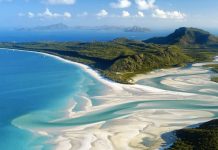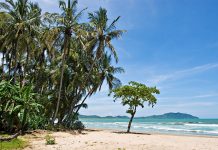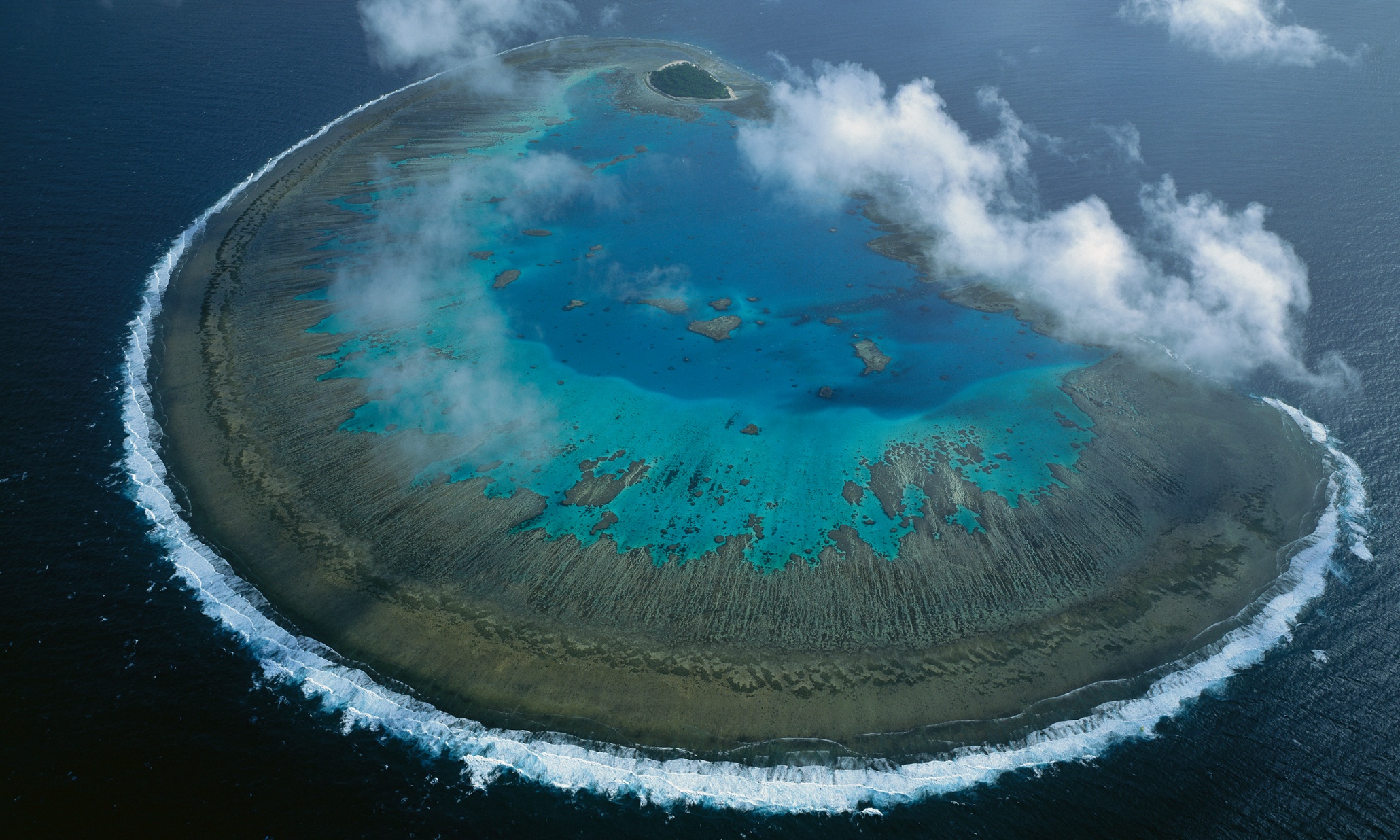Desert exploring and kayaking, Djibouti
Hard-pushed to pinpoint it on a map? You’re not alone. On the Horn of Africa, bordered by Eritrea, Ethiopia and Somalia, this tiny country is hardly on the tourist radar. But its lunar-like landscape, sculpted by volcanic activity and wind erosion and punctuated by salt lakes, where nomadic tribes still roam, makes a great setting for an adventure. Visitors can kayak or snorkel from the former beachside capital, Tadjoura, explore villages and waterfalls in the Goda mountains and kick back in Djibouti City, once a sleepy French outpost, now a lively port town. Explore has a new 12-day trip toEthiopia and Djibouti for £2,676, including flights and most meals. It’s not the cheapest place for independent travel, but there are some great places to stay (see lonelyplanet.com). Ethiopian Air has flights from Heathrow via Addis Ababa for about £500.
Cycling, Burma
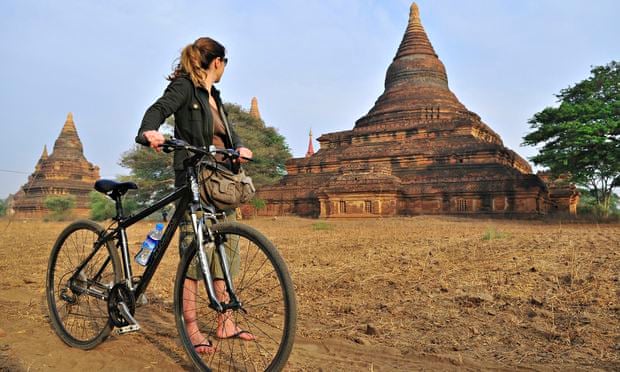
Burma has been one of the best-selling destinations of the past few years for adventure operators, which continue to be creative with itineraries. Imaginative Traveller says it expects its new Burma by Bike package (from £2,049pp for two weeks with B&B accommodation, flights extra) to be a bestseller. It includes rides to the lakeside Inthein pagodas, minority villages on Inle lake and Mandalay, the last royal capital of Burma.
Specialist operator Inside Japan Tours is launching Inside Burma Tours for 2015, after success with its Inside Vietnam offshoot. Trips will include a 15-night Kipling’s Burma trip (15 nights from £2,650pp, flights extra) to celebrate the 150th anniversary of the author’s birth, which covers Yangon, Bagan, Mandalay and a two-night cruise on Irrawaddy river – sites relating to the colonial era and Kipling’s writing.
Those who want to travel independently – which is now easy and safe to do in Burma – might find local operator mrmyanmartravel.com useful for ideas and some arrangements, such as domestic flights. You need to reserve hotel rooms well ahead in busy places such as Yangon.
2CV rallying, Spain
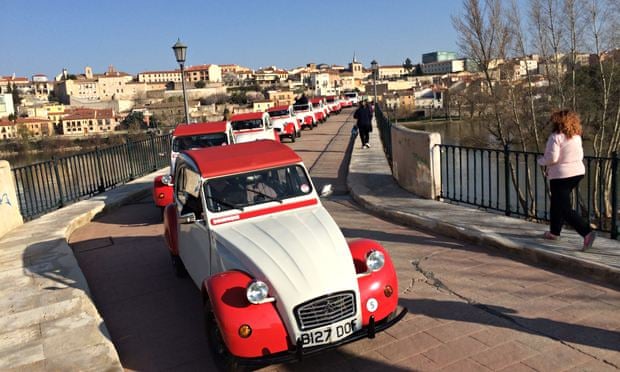
Anyone with an eye for vintage motors and a yearning for Spanish landscapes can join a “tin snail” trail across Spain in a just-for-fun rally involving 16 classic Citroën 2CVs. The Silver Road Rally, run by 2CV Adventures (it also does corporate and hen party-type events using the cars), is a week-long trip in March, and pitched as a holiday rather than a sports event, so you don’t have to be Jenson Button to enter. The historic Via de la Plata trade route runs from the northern city of Gijón to Seville, through Asturias, Castilla y León, Extremadura and Andalucía. The rally joins it in Oviedo, with stopovers in Zamora, Cáceres and Seville before the finish line in Málaga. The £1,250pp entry fee includes return ferry from Portsmouth to Santander, accommodation in traditional hotels and paradors, dinners, the car (two sharing each) and mechanical support.
Mountain trekking, Iraqi Kurdistan
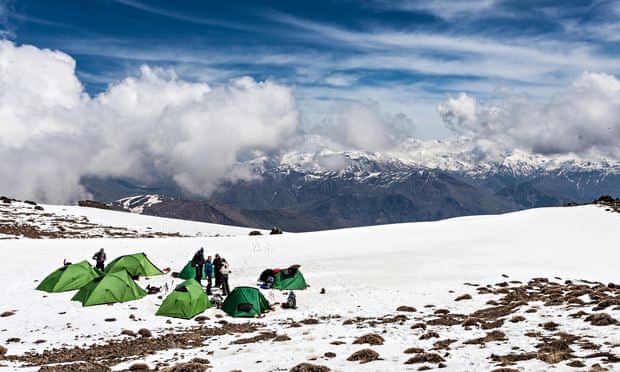
Iraq might seem an adventure too far, but Iraqi Kurdistan, an autonomous region in the north, is relatively safe for travellers. (Note that the security situation could change rapidly due to Isis, and always check FCO advice before travel.) Kurdistan boasts Iraq’s first national park, Halgurd Sakran, which is currently being set up in Erbil province, bordering Turkey and Iran. The 1,100sq/km park includes Halgurd (Iraq’s second-highest mountain, at 3,607 metres), dramatic waterfalls and rare species such as lynx, leopards and brown bears. There are plans to invest in mountain climbing and skiing facilities, but for the moment there is no infrastructure – so a winter trekking expedition there is a true adventure. Secret Compass has a tough but rewarding trip to the region (from £1,499 excluding flights, 4-12 April). You’ll stay in shepherds’ huts and tents, carry your own 20kg pack for five days (there are no porters), and climb Halgurd. Flights from London to Erbil start from about £300. If you’d prefer not to travel with a group, it would be advisable to hire a local guide because of the risk of mines.
Nagorno-Karabakh
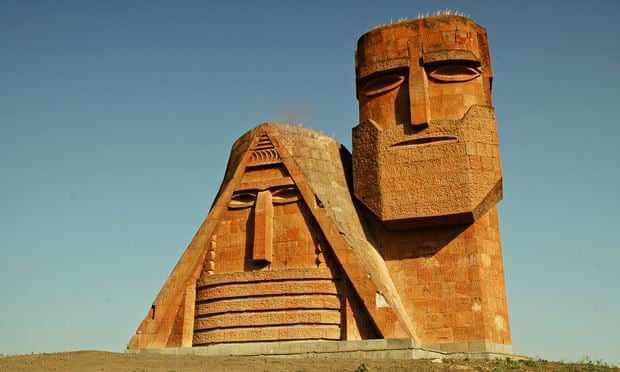
In terms of destination one-upmanship, little can beat Nagorno-Karabakh. The mountainous enclave is surrounded by Azerbaijan and under the control of Armenia, although it declared independence (largely unrecognised) in 1991. Border skirmishes and ongoing wrangling for political control mean it is not for the faint-hearted, but the region has a lot to offer: mountain monasteries, archaeological sites, ancient cave settlements and areas of outstanding natural beauty. Regent Holidays has a new 11-day group tour that starts and finishes in Yerevan, the Armenian capital, and includes seven days in Nagorno-Karabakh (departs 21 September and 1 October, from £1,590 including flights). You can fly to Yerevan, via Kiev or Vienna, from around £225, but the British embassy can’t provide assistance in Nagorno-Karabakh, so think carefully about travelling independently.
Canyoning, the Azores
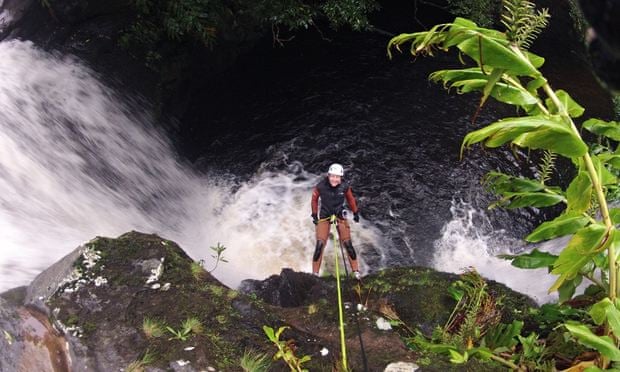
The remoteness of the Azores – a Portuguese archipelago in the Atlantic 900 miles off the European mainland – adds to the feeling of adventure. It’s a place of wild, rugged landscapes, whipped by the ever-changing elements, where sailors swap tales of derring-do. The volcanic landscape offers some of the best canyoning terrain in the world, and Azores Choice offers a week’s trip, with abseiling down waterfalls, jumping into pools and sliding down water chutes on Flores and São Miguel islands from £1,020pp, with flights via Lisbon. In April, Ryanair launches the first low-cost direct flights from the UK (from Stansted from £78 return) and easyJet is set to follow, making this wildlife-rich playground cheaper to get to (local carrier Sata already flies direct from Gatwick). Organise your own adventures, from rock climbing to mountain biking, with Azores Adventure Islands.
Horse-riding, Pyrenees
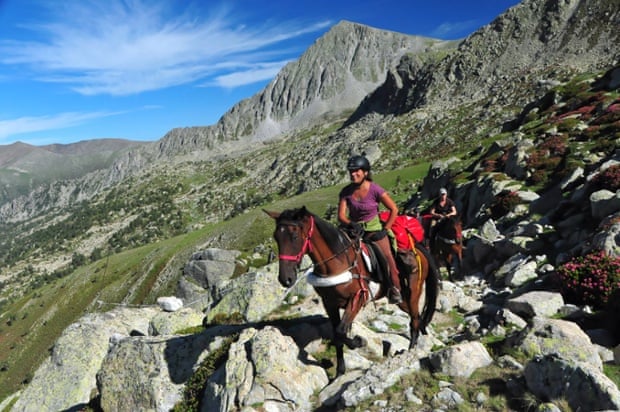
In the Saddle’s Andorra Trail horse riding holiday should put even the most intrepid equestrian to the test. Covering 350km from the Mediterranean coast up into the Pyrenees, riders climb to an altitude of more than 3,000 metres, passing through Spain, France and Andorra and traversing remote wilderness areas accessible only on foot or horseback. There’ll be up to eight hours a day in the saddle, and nights are spent camping or in shepherds’ refuges. Running from June to September, the 12-night trip costs from £1,424, excluding flights to Barcelona.
Extreme survival, UK
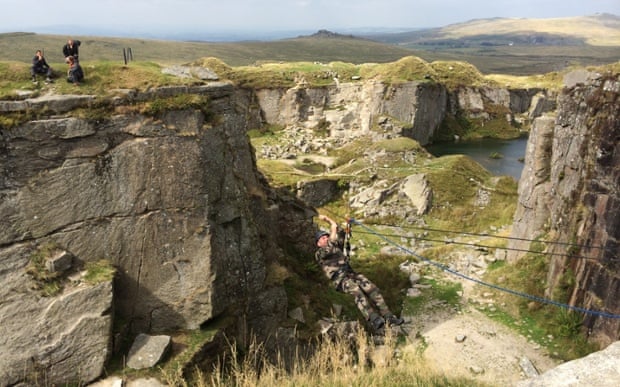
The brand that is Bear Grylls continues to grow (he now sells coffee cups!), but regardless of the authenticity of TV shows like The Island (in which 13 men were marooned on a desert island and left to fend for themselves), the self-styled adventurer knows a thing or two about wilderness skills. With the programme returning to our screens in May – this time with female contenders too – you might be inspired to try his five-day Survival Academy course, where participants learn survival skills on a “remote” island in the north-west Scottish Highlands (£1,399pp). If you fancy saving your dosh and doing it yourself, splash out on a bivvy bag and some supplies and head off for some wild camping in Scotland (unlike elsewhere in the UK, it’s legal).
Surfing, Mozambique
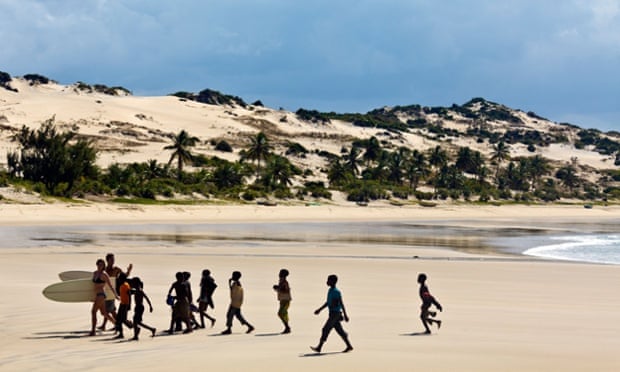
This up-and-coming surf destination has long white beaches, warm turquoise water teeming with fish and coral, and pounding waves, especially in the south. And except around Inhambane and Ponta d’Ouro, surfers are likely to have the waves to themselves – much of the coast is completely undeveloped. Ticket to Ride has a three-week surfing safari, cruising the coast in 4x4s to hidden points and empty breaks. The trip also includes diving with whale sharks, yoga and dune driving (3 April, 21 August and 20 November, from £1,850, flights extra). Independent travellers may find it easier to stick to established surf beaches, with campsites and cheap bungalows by the sea. Find tips at gosurfafrica.com and an interactive map at wannasurf.com. There are flights from London to Inhambane via Johannesburg from about £600, but a more intrepid option is to overland it from Jo’burg; find self-drive and bus details at turtlecovetofo.com.
On the coffee trail, Nicaragua
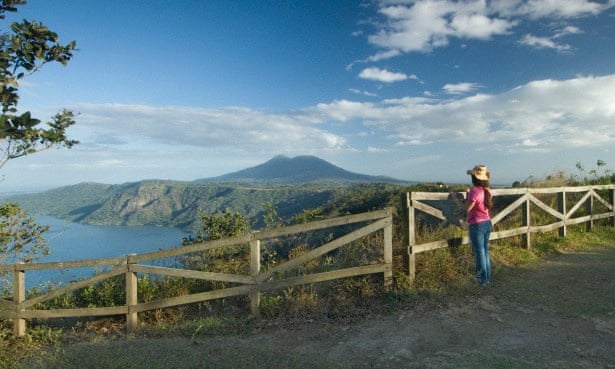
It may not have many big-draw sites, but Nicaragua is raved about by in-the-know backpackers, who come for its beaches, laid-back atmosphere, surfing and volcanoes. There’s some pressure to see it before the planned coast-to-coast canal bisects it via lake Nicaragua. Compact and easy to explore, it’s probably best combined with a neighbouring country, such as Costa Rica. New packages include Costa Rica Travel Plan’s Wake Up and Smell the Coffee!, a break in the coffee-growing Matagalpa Pacsila region of Nicaragua, staying at the Apante nature reserve and following the production process on a coffee estate. A homestay can be added (£48pp), and there’s a large indigenous community here known for handicrafts and music.
Alternatively a new operator, Vidados, has several itineraries, including a group food-themed tour to pineapple and cocoa farms, cafes and fritangas (local restaurants) for £1,166pp, including seven nights’ accommodation, guiding, transport and most meals, but not flights.
Biking challenge, Namibia
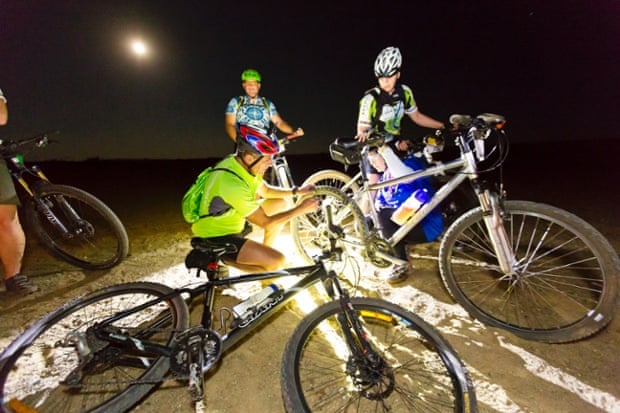
With the oldest desert, highest sand dunes and the largest canyon in Africa, Namibia is one big adventure playground. Activities range from climbing the Spitzkoppe, a group of stark granite peaks, to skydiving over the Namib desert or sandboarding down the dunes. One of the most challenging events is the biannual Desert Knights mountain bike tour, now in its sixth year, which takes place in the Ai/Ais-Richtersveld Transfrontier Park in the far south. Uniquely, much of the five-day, 180km route is tackled at sunset and at night, under a full moon, to avoid the intense desert heat. There is also a day of kayaking (about 20km) along the Orange river. Enter independently at desertknights-mtb.com. The tour takes place this year from 30 April to 6 May and 24 to 30 September (£612 for six nights’ camping, meals, activities and shuttles; flights from London to Windhoek start at about £650). Alternatively, new for 2015, Gane & Marshall is offering the ride as part of a 13-day guided tour of Namibia (20 September to 3 October, £2,495 excluding flights).
Sea kayaking, Fiji
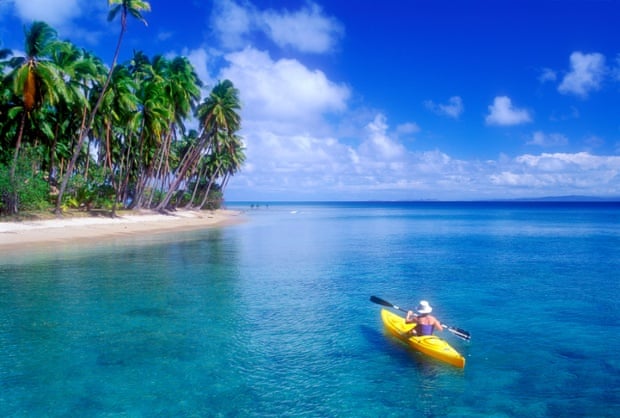
The restoration of democracy in September, after eight years of military dictatorship, has made Fiji a more attractive proposition. A nation made up of 332 islands is a sea kayaker’s dream – and the country has plenty of inland waterways, too. Planning an independent kayak trip is still tricky, as most operators only offer guided tours, and rental companies tend towards single-day hires. If you can, your best bet is to bring your own folding kayak. Avoid the cyclone season (November-April) and stick to the north-west side of the islands for the calmest seas. The Kadavu group is protected by the Great Astrolabe reef, making for easy paddling; the Yasawa islands have swanky hotels; and the remote Lau group is best for beach camping. Viti Levu, the largest island, has extensive river paddling, including white water. Find more tips at adventure-journal.com. For an organised trip, try Island Spirit, where you kayak to tiny desert islands, waterfalls and lagoons, and tackle jungle rivers, from £1,290 for two weeks excluding flights, 20% off if booked by 31 January for travel before August. Flights from London to Nadi start at about £780.
Powered by WPeMatico


